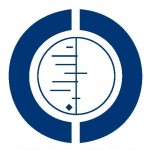
Anxiety disorders are common and disabling conditions, with a lifetime prevalence of 17% in the general population. Due to high rates of treatment resistance, there is interest in new pharmacological treatment options.
Second-generation antipsychotic drugs may be a helpful treatment for anxiety disorders. This Cochrane review looked at RCTs comparing quetiapine, olanzapine and risperidone with placebo and antidepressants. Only the data on quetiapine was considered good enough to draw any conclusions. Patients taking quetiapine showed significant improvement, but also experienced lots of side effects, which led to high drop out rates.
The plain language (!) Cochrane summary:
Anxiety disorders are a prevalent and disabling condition. Because of high rates of treatment resistance, there is interest in new pharmacological treatment options such as second-generation antipsychotics. This systematic review evaluated the efficacy and tolerability of second-generation antipsychotics in the treatment of anxiety disorders. We found eleven randomised placebo-controlled trials, comparing quetiapine, olanzapine and risperidone with placebo and antidepressants.
The vast majority of the available data was on quetiapine (> 3000 participants). Participants with generalised anxiety disorder responded significantly better to quetiapine than to placebo, measured as a reduction in the Hamilton Anxiety Scale (HAM-A). Participants treated with quetiapine were more likely to drop out due to adverse events, to gain weight, to suffer from sedation or to suffer from extrapyramidal side effects. The evidence on the other second-generation antipsychotics is currently too limited to draw any conclusions.
Depping AM, Komossa K, Kissling W, Leucht S. Second-generation antipsychotics for anxiety disorders. Cochrane Database of Systematic Reviews 2010, Issue 12. Art. No.: CD008120. DOI: 10.1002/14651858.CD008120.pub2.

